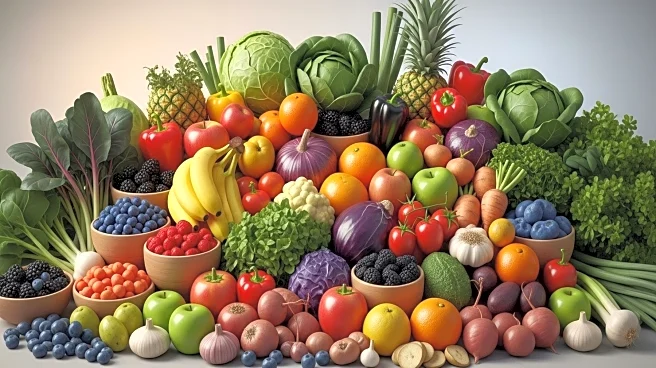What is the story about?
What's Happening?
Heifer International has called on African governments to prioritize women in the transformation of agrifood systems to address hunger and malnutrition crises. This call comes ahead of the United Nations-declared International Year of the Woman Farmer and Gender in Food, Land and Water Systems Conference 2025. Surita Sandosham, President and CEO of Heifer International, emphasized the importance of women's involvement in food systems decisions, stating that without their central role, global food security and climate goals may not be achieved. The conference in Cape Town, South Africa, serves as a platform for global leaders to discuss the next phase of food systems transformation, with a focus on ensuring women's participation.
Why It's Important?
The involvement of women in agrifood systems is crucial for achieving sustainable and equitable food security. Analysis shows that closing the gender gap in agriculture could lift 45 million people out of food insecurity and increase global GDP by 1 percent. Heifer International's initiatives across Southern Africa, such as the Women's Economic Empowerment initiative in Zambia and the Passing on the Gift model in South Africa, demonstrate the positive impact of empowering women in agriculture. These programs help women access finance, adopt climate-smart practices, and build sustainable livelihoods, highlighting the potential benefits of gender-focused agricultural policies.
What's Next?
The upcoming International Year of the Woman Farmer and Gender in Food, Land and Water Systems Conference 2025 will provide a platform for researchers, policymakers, and development leaders to explore strategies for integrating gender equality into food systems. The conference aims to drive more sustainable, resilient, and equitable food systems by ensuring women's leadership and participation. As global leaders discuss food systems transformation, there is an opportunity to dismantle barriers to women's participation, which is essential for achieving food security and climate goals.
Beyond the Headlines
Empowering women in agriculture not only addresses food insecurity but also contributes to broader social and economic development. By supporting women's leadership in agrifood systems, countries can foster more inclusive and resilient communities. The focus on gender equality in agriculture also aligns with global efforts to promote sustainable development and climate resilience, highlighting the interconnectedness of social, economic, and environmental goals.
















